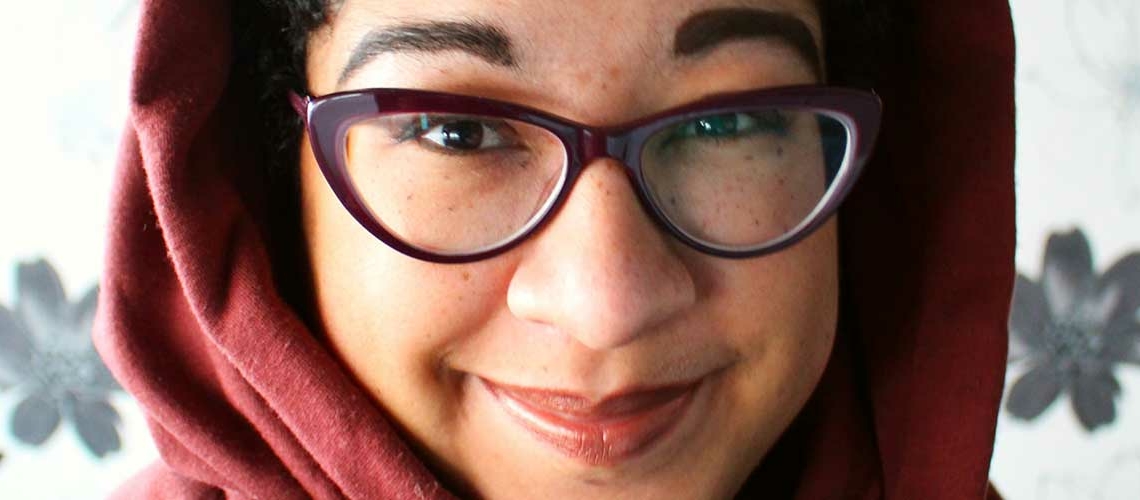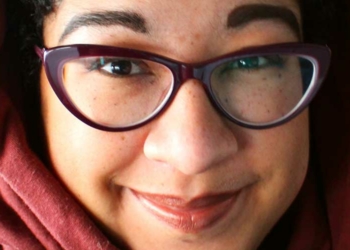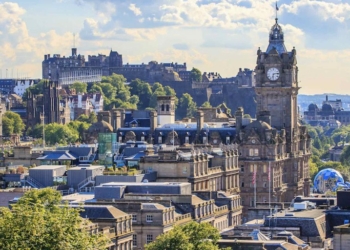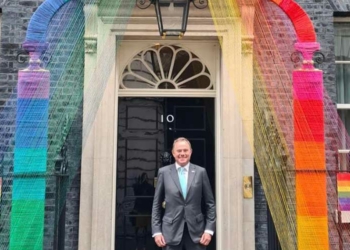Of all the places I expected to experience homophobia, a funeral was pretty far down the list. Social convention dictates that we mourners put aside our differences for long enough to pay tribute to the departed; keep the peace to comfort the family they left behind. So – in much the same way I’d never dream of launching into a debate about radical feminism during a wake – I had assumed people would keep their more ‘controversial’ takes to themselves. But that was before I met Moira*.
Over soup and sandwiches, we reminisced about our friend, who recently succumbed to cancer. Moira and my grandmother initially hit it off, both retired teachers, and began to swap stories about their shared profession. And then it happened. Moira told us about a former pupil of hers, the head anaesthetist in an English hospital. She had bumped into him at a social event, and was horrified to find that he had pink clothes, camp mannerisms, and – shock horror – a male partner.
“I don’t mind them being gay,” said Moira. How generous, I thought to myself, wishing my lemonade were laced with something stronger.
Then Moira followed it up with a ‘but.’ And the but that follows a denial of bigotry is an uncomfortable thing, because we all know what’s coming next. Moira didn’t hold back: “But why does everyone need to know that they’re gay? They don’t need to make it so obvious.”
“Apparently not that obvious,” I said, glancing at Moira. I’m not sure whether she realised I was coming out to her, because straight people aren’t always great at detecting lesbian presentation, but she certainly picked up on my distaste.
The conversation fizzled out. Moira left our table and went to talk to somebody else. And I thought about her hypocrisy. Throughout the wake she had been attentive to her husband, behaving in a way that made their relationship obvious. But if I had brought a female partner along and done the same – worn a wedding band, touched her hand, talked at length about our shared history – Moira would no doubt have felt I was flaunting my lesbian status.
Moira had no qualms about making her heterosexuality clear. Yet she expected us homos to cloak our sexuality in secrecy and shame. It would have been unthinkable for her to hear me say ‘I don’t mind you being straight, but why does everyone need to know you’re straight?’ And therein lies the problem. There are so many double standards define which relationships are recognised as legitimate, and which are denied. For all the advances we have made since scrapping Section 28, there is still a prevailing attitude that straight is normal, lesbian and gay deviant.
It would have been unthinkable for her to hear me say ‘I don’t mind you being straight, but why does everyone need to know you’re straight?’ And therein lies the problem.
Straight people don’t hesitate to show their partner affection in public. And why should they? Straight people don’t need to be afraid of slurs, violence, or being ostracised when friends and family learn of their heterosexuality. Not that the knowledge ever comes as a shock. Everybody is assumed straight from birth. Nobody has to come out as het. That we live in a heterocentric culture creates an entitlement to public spaces that can, at times, be toxic.
For example, I once witnessed a woman attempt to give her boyfriend a hand job on the tube. The pair of them were standing right in front of me, his erection at eye level. They stopped only when I got my phone out to take a picture, with the intention of reporting them to TFL. This was mere weeks before the infamous London bus attack, when a group of young men harassed and attacked a lesbian couple who refused to kiss for their entertainment.
The rules for mixed-sex couples and same-sex couples are different. Not all relationships are viewed as equal. Though same-sex marriage has been legalised, we still live in a country where two thirds of lesbian, gay, and bisexual people fear holding hands with their partner in public due to the risk of a homophobic reaction.
The trappings of straight culture are everywhere we look. Just think of those tacky “his & hers” mugs; the excruciating cult phenomenon that was Fifty Shades of Grey. From engagement photoshoots to wedding culture to the god-awful trend of gender reveal parties, there are straight people around the world being very loud about their heterosexual lives.
I can’t think of a single mainstream film or TV show – including the L Word – that doesn’t have any straight characters or relationships. Yet whenever a token gay character is introduced, or there’s a sub-plot centred around a same-sex relationship, The Straights have the audacity to claim we are the ones rubbing our lifestyle in the faces of the audience. And this is a definite case of the pot calling the kettle pink.
There’s a name for the belief straight lives should be lived in the open, and gay lives in the shadows: homophobia. And, on top of grief for my friend and his family, I feel intense sorrow knowing that Moira is far from alone in this mindset. Homophobia continues to plague our society. I was naïve not to see it coming.
*Not her real name.
Claire Heuchan is an author, essayist, and Black radical feminist. She writes the award-winning blog, Sister Outrider.























Everything you say here is painfully true, and it's the reason why the word "queer" has caught on so quickly among both Gay and non-Gay people. Neither ever stopped thinking of LesBiGay folk as deviant and strange. Sometimes I think they've been itching for someone to give them permission to label us the way they always wanted to, and now the LGBTQWTF+ leadership (as well as their toadies in the media) have granted it to them. It takes much more than a change in the law to uproot centuries of internalized ignorance and self-hatred.